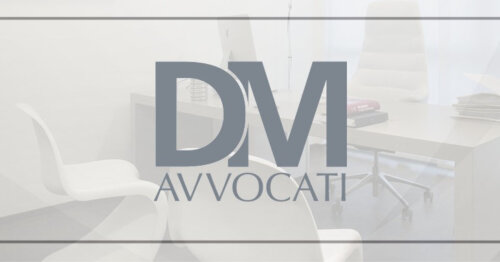Best Antitrust Lawyers in Viareggio
Share your needs with us, get contacted by law firms.
Free. Takes 2 min.
List of the best lawyers in Viareggio, Italy
About Antitrust Law in Viareggio, Italy
Antitrust law in Viareggio, as part of the broader Italian legal framework, is critical in maintaining market competition and preventing unfair business practices. Viareggio, being a part of the Tuscany region, follows the national regulations set by Italian and European Union legislation which aim to curb monopolies, prevent collusion, and promote consumer welfare. These laws ensure that businesses operate on a level playing field, fostering innovation and fair prices for consumers.
Why You May Need a Lawyer
You may need legal assistance in antitrust matters for several reasons. If you are a business owner in Viareggio, you might need a lawyer to ensure compliance with laws relating to mergers and acquisitions. Additionally, if you're affected by price-fixing, market allocation, or abusive behavior by dominant companies, legal intervention could be necessary to enforce your rights. Moreover, if underestimated antitrust practices have led to unfair competition affecting your business operations, a specialist lawyer could guide you through complex legal proceedings.
Local Laws Overview
Antitrust regulations in Viareggio are governed primarily by Italian law, aligned with EU directives. Key aspects include:
- Cartel Prohibition: Agreements or concerted practices between competitors that prevent, restrict, or distort competition are illegal.
- Abuse of Dominant Position: It is unlawful for dominant companies to abuse their power to eliminate competition.
- Merger Control: Mergers that significantly impede effective competition in the market are scrutinized by Italian antitrust authorities.
- State Aid Control: Ensuring that state aid does not distort competition within the internal market is key, impacting local enterprises in the public and private sectors.
Frequently Asked Questions
What is the purpose of antitrust laws?
The main purpose is to protect free competition in the marketplace, which benefits consumers with lower prices and more options, and prevents unfair business practices.
How do Italian laws differ from EU antitrust laws?
Italian laws align with broader EU regulations but are implemented locally by the Italian Competition Authority (Autorità Garante della Concorrenza e del Mercato).
What are some examples of antitrust violations?
Common violations include price-fixing agreements, bid-rigging, market division, and abusing a dominant market position.
Who enforces antitrust laws in Italy?
The Italian Competition Authority, often in collaboration with the European Commission, enforces these laws in Italy.
Can small businesses be subject to antitrust investigations?
Yes, if their practices potentially harm competition or consumers, even small businesses can be investigated.
What should I do if I'm accused of an antitrust violation?
It’s crucial to seek expert legal advice immediately to understand the allegations, gather evidence, and prepare a defense.
How can a lawyer assist in an antitrust case?
A lawyer can help navigate the complex legal landscape, ensure compliance, represent you in investigations, and protect your interests in court.
Are there penalties for violating antitrust laws?
Yes, penalties can be severe, including fines, damages compensation, and even criminal sanctions against responsible individuals.
How can I ensure my business complies with antitrust laws?
Regular audits, legal consultations, and compliance training for employees can help prevent violations.
What are the steps involved in reporting an antitrust violation?
Gather evidence of the violation and report it to the Italian Competition Authority or engage a lawyer to assist with the process.
Additional Resources
For more information and assistance, consider contacting:
- Italian Competition Authority (Autorità Garante della Concorrenza e del Mercato): Key regulatory body for antitrust issues.
- European Commission: Provides comprehensive guidelines on EU-wide antitrust laws.
- Local Chambers of Commerce: May offer resources and advice specific to Viareggio businesses.
Next Steps
If you need legal assistance in antitrust matters, consider the following steps:
- Consult a Specialist: Contact a lawyer specializing in antitrust law to discuss your situation.
- Gather Documentation: Assemble relevant documents and evidence related to your case or inquiry.
- Consider Mediation or Settlement: In some cases, alternative dispute resolution could be a viable option.
- Stay Informed: Keep updated on local and EU antitrust regulations through newsletters and legal seminars.
Lawzana helps you find the best lawyers and law firms in Viareggio through a curated and pre-screened list of qualified legal professionals. Our platform offers rankings and detailed profiles of attorneys and law firms, allowing you to compare based on practice areas, including Antitrust, experience, and client feedback.
Each profile includes a description of the firm's areas of practice, client reviews, team members and partners, year of establishment, spoken languages, office locations, contact information, social media presence, and any published articles or resources. Most firms on our platform speak English and are experienced in both local and international legal matters.
Get a quote from top-rated law firms in Viareggio, Italy — quickly, securely, and without unnecessary hassle.
Disclaimer:
The information provided on this page is for general informational purposes only and does not constitute legal advice. While we strive to ensure the accuracy and relevance of the content, legal information may change over time, and interpretations of the law can vary. You should always consult with a qualified legal professional for advice specific to your situation.
We disclaim all liability for actions taken or not taken based on the content of this page. If you believe any information is incorrect or outdated, please contact us, and we will review and update it where appropriate.








